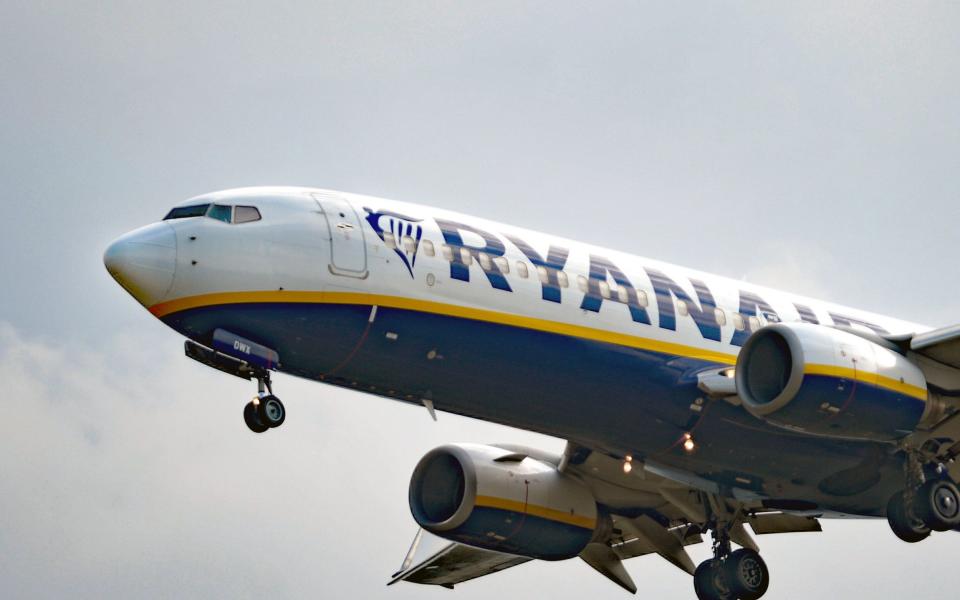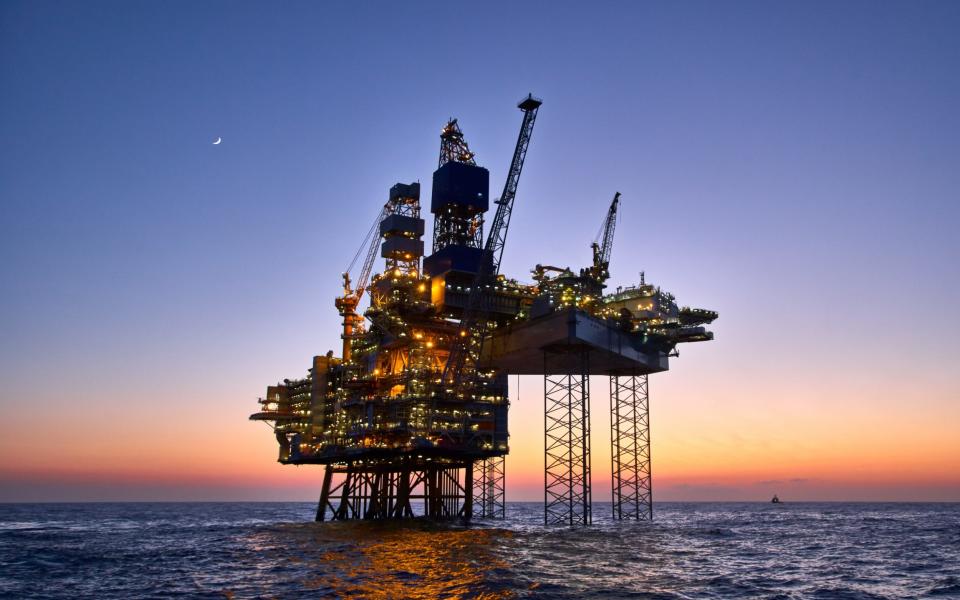European car manufacturers are being forced into a price war with Chinese companies as the EU pushes ahead with plans to ban combustion engines, the boss of BMW has warned.
BMW chief executive Oliver Zipse has said he considered China entering the European market as an “imminent risk” after the development of its electric car market over the last 15 years enveloped much of the world’s battery supply chains.
He said that companies like BMW will likely be shielded from competition from China’s manufacturers, which will target buyers of cheaper vehicles.
Speaking ahead of the annual IAA Mobility conference in Munich, Mr Zipse said: “The base car market segment will either vanish or will not be done by European manufacturers.”
It comes after BYD, China’s biggest electric carmaker, declared war on Western rivals by calling on the country’s auto manufacturers to unite and “demolish” their competition.
In February, the European Parliament voted to approve a new law banning the sale of petrol and diesel cars from 2035. In Britain, the Government plans to ban the sale of new cars powered solely by petrol and diesel from 2030.
Read the latest updates below.
09:07 AM BST
Recession to plunge 7,000 businesses into insolvency per quarter, think tank warns
More than 7,000 businesses could become insolvent every three months next year, a think tank has warned, as it forecast Britain will tumble into recession.
Companies will go under as interest rates continue to rise, pushing up debt repayments to unsustainable levels for some businesses, according to the CEBR.
It warned Britain will be in recession after contractions in the final three months of this year and first quarter of 2024.
However, it said the Bank of England may start to cut interest rates next year in an attempt to “restimulate demand” in the economy, although rates will “still stand far above recent norms for some time”.
There were over 6,700 business insolvencies in Britain in the three months to June, which was more than double what was seen in a typical quarter during the pandemic.
It is also 50pc higher than the same quarter in 2019, with the number of quarterly insolvencies averaging 4,100 between 2015 and 2019.
08:49 AM BST
Swiss economy stalls amid German struggles
Switzerland’s economy stalled in the second quarter as its manufacturing sector fell victim to waning global demand and the ripple effect of weaker growth in Germany.
Gross domestic product, adjusted for large sports events, was flat in the three months through June after a 0.9pc jump at the start of the year. Economists anticipated an increase of 0.1pc in a Bloomberg survey.
Switzerland’s State Secretariat for Economic Affairs said:
The challenging international environment is weighing on the cyclically sensitive industrial sectors such as mechanical engineering and metal construction.
This was also reflected in a broad-based decline in goods exports.
The numbers indicate the Swiss economy is suffering knock on effects from the woes of its largest trading partner: Germany.
A survey of purchasing managers in Switzerland indicated there has been contraction in manufacturing since January.
08:26 AM BST
Miners lift FTSE 100 amid China’s bid to boost economy
The FTSE 100 opened higher after China rolled out new measures to prop up its stuttering economy, giving a boost to mining stocks.
The exporter-heavy index has gained 0.5pc, while the mid-cap FTSE 250 index has risen 0.3pc.
Industrial metal miners rose as much as 1.8pc, leading sectoral gains.
China stepped up measures on Friday to boost the country’s faltering economy, with top banks paving the way for further cuts in lending rates and reports that Beijing plans further action including relaxing home-purchase restrictions.
London Stock Exchange Group rose 0.1pc amid reports that it plans for a blockchain-based digital assets business.
CMC Markets said Albert Soleiman had been appointed as its chief financial officer, initially sending its shares up 2.8pc before falling back to be flat.
Wood Group said it had signed a new agreement valued at around £262m for North Sea operations with Harbour Energy. The companies rose 1.2pc and 1.1pc, respectively.
08:18 AM BST
Ergomed surges after private equity takeover offer
Pharmaceutical services provider Ergomed has agreed to a private equity takeover that values the business at £703.1m.
Shareholders in the Guildford-based company will receive 1,350p per share under the cash acquisition by Permira, which is a 28.3pc premium on Friday’s closing price.
John Dawson, senior independent director of Ergomed, said the offer “fairly reflects the exceptional quality of the Ergomed business, its people and its future prospects”.
Its shares have surged by 26.8pc in early trading.
08:06 AM BST
FTSE 100 opens higher
UK markets opened higher amid increasing bets that the Federal Reserve was finished raising US interest rates, and amid hopes the steady drip feed of stimulus from Beijing will stabilise the Chinese economy.
The FTSE 100 was 0.6pc higher at 7,509.75 while the midcap FTSE 250 climbed 0.3pc to 18,599.24.
07:54 AM BST
Gas prices climb amid shrinking Norwegian output
European natural gas prices has extended last week’s gains after outages in Norway reduced supplies to Britain and the continent.
Benchmark Dutch futures jumped as much as 5.3pc in early trading after flows from Norway, Europe’s top producer, dropped to the lowest since at least 2015 over the weekend.
Output remains less than half the country’s total capacity.
While European demand remains muted and winter storage sites are nearly full, the dip in supplies adds nervousness to a market already rattled by risks of strikes in Australia.
Three fields in Norway have halted supplies since Saturday for works not previously notified to traders.
It comes as the market was already contending with a shutdown of the giant Troll field as well as other facilities.
Dutch front-month futures, Europe’s gas benchmark, traded 3pc higher at more than €36 a megawatt-hour. The UK equivalent contract added 4.5pc.
07:47 AM BST
Air traffic control chaos ‘still not explained,’ complains Ryanair
Budget airline Ryanair said more than 350 flights were cancelled on August 28 and 29 due to the air traffic control (ATC) failure, impacting 63,000 of its passengers.
The Irish carrier said the ATC failure – which caused widespread travel disruption last week and left passengers stranded – “has still not been explained”.
Ryanair carried 18.9m guests in total last month, up 11pc on a year earlier, it added.
Meanwhile, Hungarian low-cost airline Wizz Air said it carried 6.1m passengers in August, up 23.9pc on the same months last year.

07:42 AM BST
Wood wins £262m contract with largest North Sea oil producer
Consultancy and engineering firm Wood has won a $330m (£262m) contract with Harbour Energy, the biggest producer of oil and gas in the UK’s North Sea, the companies announced.
Wood said that under the new agreement it would provide a series of services to Harbour, including helping to operate and maintain its offshore sites and aiding the company with procurement and construction.
The initial five-year contract has the option to be extended, once a year, for another five years. It will “support the employment of hundreds of people,” Wood said.
Wood executive president of operations Steve Nicol said: “We have worked on North Sea assets for more than 50 years and excel in designing and managing the complexity of energy infrastructure while at the same time seeking to minimise associated emissions.”

07:37 AM BST
Good morning
Thanks for joining me. The boss of BMW has warned that European car manufacturers risk being plunged into a battle with China that they cannot win as the EU pushes through with its ban on petrol cars.
In February, the European Parliament voted to approve a new law banning the sale of petrol and diesel cars from 2035.
5 things to start your day
1) Scramble to secure more power for Rishi Sunak’s supercomputer lab | Overloaded grid risks stalling PM’s bid to establish Britain as an international AI hub
2) ‘Cost of owning crisis’ as 50,000 fall into negative equity | Affected homeowners face difficulty selling or remortgaging as house prices plunge
3) Britain losing £750m from Chinese holidaymakers because of tourist tax | Shoppers are travelling to France, Italy and Spain instead, report finds
4) Gatwick second runway won’t clash with net zero, says airport chief | Stewart Wingate insists expansion will boost economy, as Rishi Sunak prepares to reject climate advice
5) The tycoons building an empire out of Britain’s bust beer brands | After first rescuing Black Sheep, the financiers have swooped on more struggling craft brewers
What happened overnight
Stocks were higher in Asia after Wall Street was boosted by a report that signalled the US jobs market, while still healthy, is showing some signs of cooling.
That supported investors’ hopes that the Federal Reserve may soon ease up on its campaign to slow the U.S. economy by raising interest rates.
“It appears that global markets are primed to be smitten with the idea of a ‘Nirvana’ Fed tightening outcome, entailing the ‘immaculate dis-inflation’ that does not cause employment pain,” Tan Boon Heng of Mizuho Bank said in a commentary.
Fresh stimulus from China’s financial regulators for the beleaguered property sector also supported buying. They have cut down-payment requirements for first and second-time home buyers and lowered rates on existing mortgages, noted Yeap Jun Rong of IG.
Hong Kong’s Hang Seng index jumped 2.4pc to 18,828.91 while the Shanghai Composite index added 1pc to 3,166.62.
Tokyo stocks ended higher, with the benchmark Nikkei 225 index adding 0.7pc to close at 32,939.18, while the broader Topix index closed up 1pc to a fresh 33-year high of 2,373.73.
In Seoul, the Kospi edged 0.2pc higher, to 2,569.52. Sydney’s S&P/ASX 200 added 0.5pc to 7,312.60.
Shares also rose in Taiwan and Southeast Asia.
US markets will be closed today for the Labor Day holiday.
Broaden your horizons with award-winning British journalism. Try The Telegraph free for 1 month, then enjoy 1 year for just $9 with our US-exclusive offer.
Credit: Source link




